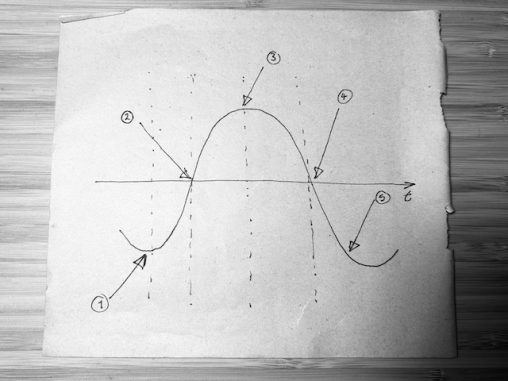Tag: regenerativedesign
Cognitive dissonance is when we know something to be true but we don’t act as if it is true. In the built environment sector, the cognitive dissonance is…
One of the participants in the Regenerative Design Lab is exploring working with The Purpose Xchange, who work directly with individuals to uncover their dreams and aspirations. The…
Here’s a simple experiment. Take a wine glass and place it on a city map. With a pencil, draw around the base. Follow the circle as closely as…
This is my final post for the year. Some things we notice because we are looking for them. I have lost my keys; I look around the house,…
Last week, I wrote about an idea-generation strategy I regularly use in teaching called Juice the Brief. This week, I’ve been working on an analogous method called Juice…
This week, I’ve been writing about observation as the starting point for regenerative design. Today, I’ve been working with colleagues at Hazel Hill Wood to envision a year-long…
Yesterday, I wrote about how starting design with observation allows us to take a broader, more holistic view of the systems we’re working within. Another reason to start…
We often think of design as starting with a design brief—a set of requirements outlining what we want. But when seen through a regenerative lens, design begins differently….
Some context. When people started visiting Hazel Hill Wood for respite and educational weekends in the early 1990s, there were no buildings. I believe the first structure to…
This post has moved. It now lives on the Constructivist blog: read the updated version → Eiffel Over is now my stage for engineering-related clowning, singing, dancing and…
Sometimes humour serves best to highlight the ridiculousness of a situation. In my last few posts I’ve been exploring the relationship between designers and the ecosystem they draw…
This post has moved. It now lives on the Constructivist blog: read the updated version → Eiffel Over is now my stage for engineering-related clowning, singing, dancing and…
This post has moved. It now lives on the Constructivist blog: read the updated version → Eiffel Over is now my stage for engineering-related clowning, singing, dancing and…
A few days ago, Parkrun turned 20 years old. What started as a simple community gathering, launched by Paul Sinton-Hewitt on October 2nd, 2004, has grown into a…
Somehow the topics of my posts have returned to the subject of the sea. It is apparently a rich subject to trawl. Sorry, I couldn’t resist the pun,…
Yesterday’s post on the fish écluses on the Île de Ré speaks to the idea of creating straightforward connections between the resources that humans need to live and…
This post has moved. It now lives on the Constructivist blog: read the updated version → Eiffel Over is now my stage for engineering-related clowning, singing, dancing and…
This post has moved. It now lives on the Constructivist website: read the updated version → Eiffel Over is now my stage for engineering-related clowning, singing, dancing and…
I read on a fact sheet that guinea pigs have 340-degree vision. On a horizontal plane they can see almost all around. Imagine! Their only blind spots are…
I spent most of yesterday afternoon up to my middle in waves learning to surf. (I’ve got a long way to go). So it is no coincidence that…

